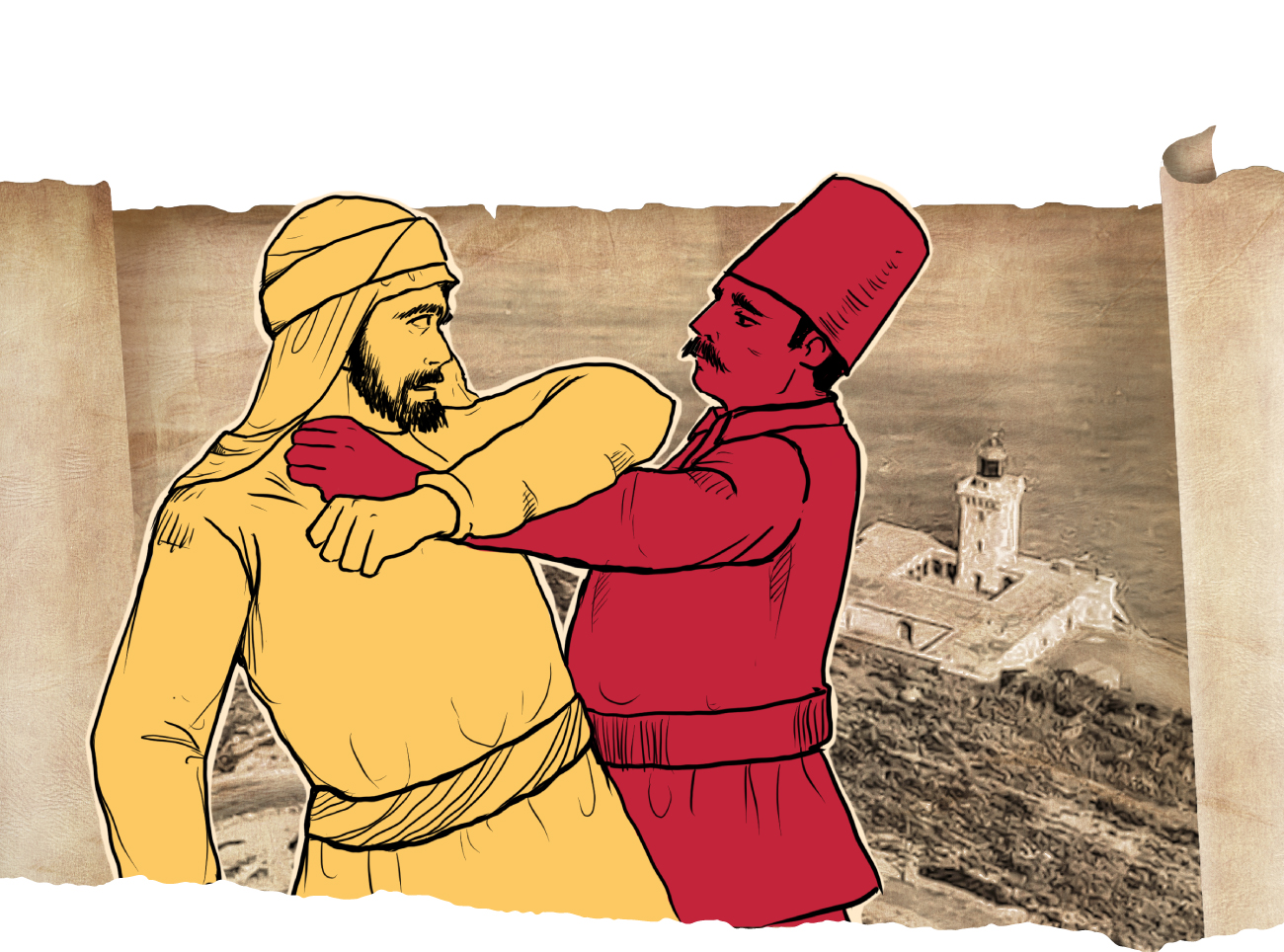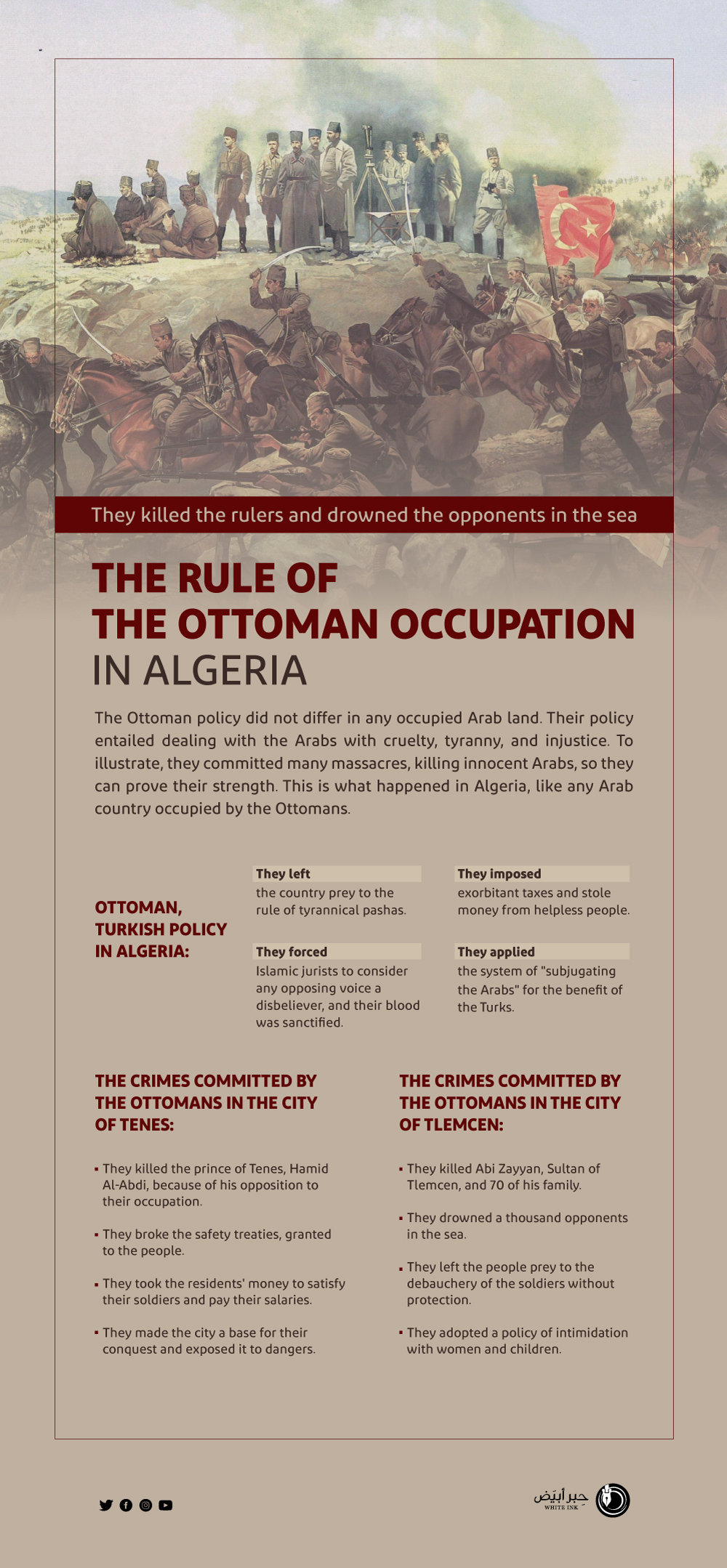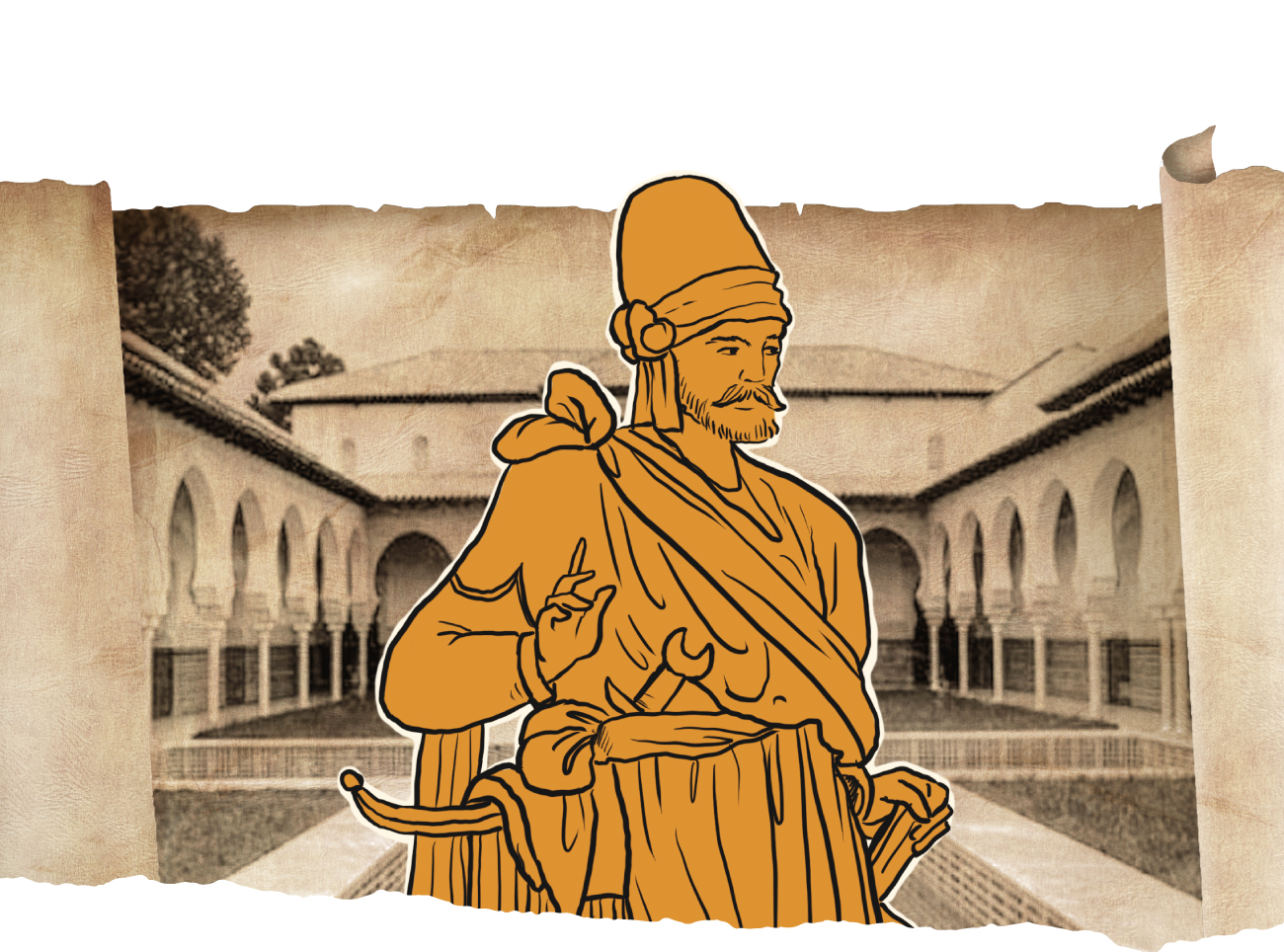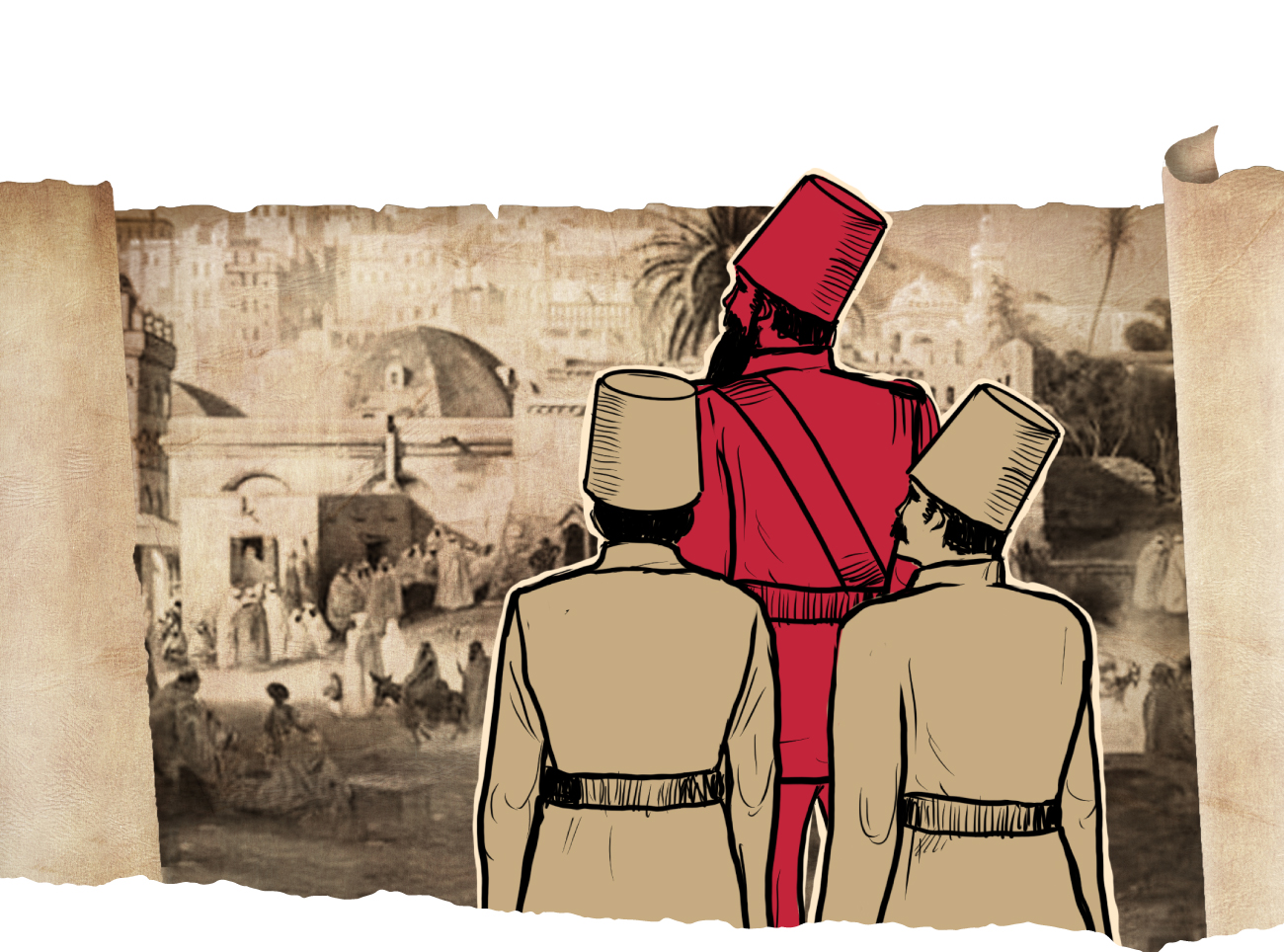
As the Mongols did, they killed the people and executed their prince
With a fatwa from the pirates’ jurists, the Ottoman massacre against the people of Tenes occurred
The people of Algeria were killed twice, once when they realized that there was someone on that land that could take the true Islamic religion as a cover for the most heinous human crimes, and the other when they found the arrows of the Ottomans penetrating into their hearts, indifferent to the thousands of tongues that repeated the testimony of faith before the soul left them.
This shock was because the Algerians, who welcomed the Turkish pirates in the port of the city, did not expect that they were heading to the worst historical era for the region. They did not expect that what they suffered from Spanish colonialism was insignificant compared to the bloody brothers Aruj and Khair Al-Din Barbarossa, who considered the sword the only way to subjugate the population of the region and to establish a state in western Algeria.
If the people of Tenes were so shocked by their misfortune, what Aruj did was not an exception in view of the massacres that took place to subjugate the city of Algiers. He wasted the blood of the Algerians and did not respect even the mosques when he entered upon the worshipers and slaughtered them in a chilling and astonishingly horrible scene.
Before talking about the massacres that are similar to what extremists have been doing in recent years, we must make it clear that from a geostrategic point of view, there were a number of elements in Tenes that made its subjection a fateful bet for pirates, Aruj and Khair Al-Din. This was expressed by the latter in his memoirs, saying: “My invading brother, Aruj, wanted to annex this town to his areas of influence”. This recognition confirms the colonial intentions of Aruj Barbarossa, despite the attempt to adapt these ambitions under the justifications of jihad and liberate the city from the oppression of the Spaniards, whose king sent “ten warships, pretending to protect the Prince of Tenes, but his real intention was to attack the Muslims”.
By extrapolating the data provided by a set of historical evidence, it turns out that Aruj wanted to humiliate the prince of Tenes, Hamid Al-Abdi, who was resorted to by the residents of the region to rid them of the oppression of the Turkish invaders. It seems that the strength of the Prince of Tenes and its distinguished geographical location made it an existential target for the colonial projects of the Turks. This trend is in line with what the Spanish historian, Diego Haido, to whom most researchers refer in this period of North African history, said in his book “History of the Kings of Algeria”: “At this moment, the king (meaning the king of Tenes) was strong and the Arabs trusted him greatly, begging him at every moment to help them get rid of the Turks and their unbearable and prolonged misfortunes, this prince named Hamid Al-Abdi”.
The distinguished geographical location of the city of Tenes was what made it an existential target for the projects of the Ottoman occupation in the Maghreb.

As usual, the Ottoman criminals, Aruj and Khair Al-Din Barbarossa’s vision of the behavioral structure of the population of the region, as well as the position and power of the Prince of Tenes, prompted them to search for a legitimate justification to fight him and seize his power. They received advice from some of the “pirates’ jurists” to resort to the text in order to accuse the prince of infidelity as a cause to march and seize the Emirate of Tenes and annex it to the empire of the “Sultan of Boats”.
As we have previously talked about this tactic, the accusation was ready and was only lacking in the blessing of some of the “jurists” who were asked to issue a legal fatwa in public and under the threat of his sword, as if he were saying: “Either the Prince of Tenes is killed or you”. Regarding the premises of this massacre, Khair Al-Din Barbarossa says: “Aruj gathered the scholars of Algeria and asked them for a fatwa: What is the legal ruling towards those made peace with the Spanish infidels and pledged allegiance to the King of Spain, who marched to kill our brothers in religion, refused advice and disobeyed? The answer of the scholars was that killing him is obligatory, his blood is wasted and his money is permissible. They wrote this fatwa and handed it to my brother Aruj”.
As the Mongols did, Aruj promised the people of Tenes safety, and they arrested their prince and handed him over to him. He accepted their apology because he was “soft-hearted” as described by his brother Khair Al-Din. As soon as the Prince of Tenes was executed, Aruj broke his covenant, like all criminals, and addressed the group who handed the Prince of Tenes to him, saying: “You should have tied up this damned and sent him to me when he came to you, and what you did after you saw me does not absolve you of responsibility. Did you not pledge allegiance to me as a ruler over you? How did you betray your oaths? Then he ordered their necks to be cut off as well”.
Here, the reader must notice that Aruj falsely claimed that the people had pledged allegiance to him, but he had never entered the city and its people had not pledged allegiance to him. Rather, it is proven that they sought help from Prince Hamid Al-Abdi to save them from the oppression of the pirates, but the doctrine of injustice and arrogance that the Turkish pirates possessed as well as their claim to possess religious legitimacy after they pledged allegiance to the Ottomans made them believe that they were Imams and that they were the representatives of the “Commander of the Faithful” and the protectors his land.


- Memoirs of Khair Al-Din Barbarossa, translated by: Mohamed Darrag (Algeria: Al-Asala Company, 2010).
- Fray Diego Haido, History of the Kings of Algeria, translated by: Abdulaziz Al-A’la (Algeria: Dar Elhouda, 2013).
- Saleh Abbad, Algeria during the Turkish rule 1514-1830 (Algeria: Editions Houma, 2012).
- Mubarak El-Mili, Ancient and Modern History of Algeria (Algeria: The National Book Foundation).


He executed the Sultan and his family, and drowned 1000 of the people
The bloody massacres of the Ottomans in Tlemcen
The Ottomans and their pirates in the Maghreb were not satisfied with the sight of innocent blood that stained their swords, nor they were deterred by the tears of orphans, so they repeated their massacres and brutal crimes everywhere, as they fed at the blood of the helpless. This how the life of the residents of the city of Tlemcen was, those people who fell into the trap in which the people of Tenes fell, before their suffering from a massacre that finished off their prince and their men.
The historical documents show that the residents of Tlemcen wrote to Aruj Barbarossa after his occupation of the city of Tenes, asking him to overthrow their sultan, Abu Hammou III, who had seized the throne of his nephew Abi Zayan and to return him to his throne. Sources say that Aruj responded immediately, especially that another city called him to occupy it, declaring his brother Khair al-Din Barbarossa on Algeria. The army of Aruj reached the castle of Bani Rashid, as it was the stronghold of one of the allies of the Turks and supporters of Sultan Abi Zayan, so-called Ahmed bin Yusuf Al-Malyani.
The people of Tlemcen fell for the same trap as the people of Tenes, so they summoned Aruj Barbarossa to save them from Sultan Abi Hammou.

A Turkish garrison of 600 mercenaries was left by Aruj under the command of his brother Isaac Barbarossa, were left in the castle, a new name that appears when searching for this family coming from Greece, to occupy Arab lands in favor of the Ottomans. Then Aruj arrived in Tlemcen, and Abu Hamo faced him outside Tlemcen with an army of three thousand men and six thousand knights, but Abu Hamo’s army was not able to confront the Turkish army, so Aruj was victorious and chased him to Tlemcen; so, Abu Hammou fled back to Tlemcen, but its people refused to open the gates to him, so he gathered his supporters and fled to Fez in the far Maghreb.
Once the thug Aruj was victorious, and managed to catch his breath, he turned to the people who warmly welcomed him, and before the gates of the city were opened to him, they took an oath from him not to destroy the city, plunder and cause damage to it, thinking that this might save them, then they believed the oath of Aruj on the Holy Qur’an that no harm shall be caused to them, and that the family of Banu Zayan will remain the rulers, and to carry on with his deception. The moment Aruj entered Tlemcen, Sultan Abu Zayan was assumed to his throne, and returned back to Algeria, leaving behind his agents and soldiers who plundered the city and subdued it, then tampered with the fates of the people, and they were aggressive, which led the people to regret their plea to Aruj and his army. but what good could regression do after it is too late.
On the other hand, the ruler of Tlemcen, Sultan Abu Zayan was not satisfied with the situation in the capital of his kingdom, so he attempted to strip Aruj of his influence and keep the Turks away from the city. as result of these event, an opportunity loomed for the pirate thief Aruj, an opportunity that prompted him to return to Tlemcen and to carry out physical elimination for the whole ruling family, as he executed Sultan Abi Zayan by hanging on the front of his palace known as “Al-Mishwar” along with seventy princes from Bani Zayan, and he massacred a group of notables, sheikhs and leaders of Tlemcen.
Other sources focused on the details, stating that Aruj had hanged Abu Zayan with seven of his sons, and drowned members of the royal family and more than 1,000 notables from Tlemcen in the great tanker of the city. After that, Aruj Barbarossa declared himself ruler of the country, over the bodies of the dead, as he expanded in sending military campaigns and mercenaries to the rest of the neighboring regions of Tlemcen to acquire their allegiance.
It never stopped at killing, intimidating and drowning, he even took it to far, as he imposed large taxes on the local population in order to subdue them and keep them subjugated to serve the Turks who occupied them, and they were the ones who asked him for assistance only to be the one who became their executioner.
Tlemcen is considered the gateway of Algeria to Morocco, by occupying it, the path to occupy the rest of the towns becomes easier, and this is what actually happened, as Aruj sent his forces in every direction to subdue the towns one after the other, leaving his garrisons of mercenaries behind him, to suddenly turns from a thief roaming the seas in search of stray ships to seizes it and enslaves its sailors, and sells them in the slave market to a pirate in disguise of a ruler who enslaves the free Arabs in Algeria, kills and drowns them in ponds
Despite this oppression, the residents of Tlemcen never surrendered, as Prince Aba Hammou returned to regain his city, and the locals proved that they yearn for freedom, away from the humiliation of the Ottoman colonialism, although these attempts did not ultimately end the Turks’ occupation of their homes and the pirates and mercenaries they brought to rule and subdue them.


- Muhammad Altansi, History of the kings of Tlemcen, investigation: Mahmoud Bouyad (Algeria: Movm lelnashr, 2011).
- Ben Atou Belbroat, “Lights around the city of Tlemcen during the Ottoman era, Mediterranean Dialogue Journal, 1st ed (2009).
- Balaraj Abdul Rahman, Cultural life in the City of Tlemcen during the Ottoman rule, Alqurtas Journa, 2nd ed (2015).
- Memoirs Barbarossa, Translation: Mohammed Daraj (Algeria: Al Asala Company, 2010).

They left the rule to the soldiers and seized the wealth of the country
The rule of the Ottoman pashas in Algeria
There will be no worse than a nation led by its inevitable fate to be under the banner of the Ottoman Empire. Only then, history begins to write the pages of blood, theft and deterioration. And Algeria was not an exception to the Arab world. As The Ottomans entered Northern Africa under anxious conditions in the region, the Spanish and the Portuguese continued their racist policy against Muslims. It was not enough for them to have the Muslims expelled from Andalusia, but rather, they transferred this policy against Muslims to North Africa, and, indeed, northern Africa almost fell under their occupation.
At the same time, the political entities in Morocco were characterized by fragility; in addition to, the rivalry among them. In such conditions, the Barbarossa brothers found their way to settle in the region. And the Ottoman Empire managed to occupy most of northern Africa, under the faked slogan of protecting Islam and Muslims from the attacks of the Spanish. But, soon, their lies were unraveled, and the people learnt about their anti- Arab- hateful strategy. Therefore, local opposition was formed to fight the Ottoman occupier in the region.
As the Ottoman occupation went on, the Ottomans started facing administrative and financial problems; in addition to having problems with the people, themselves. Most historians agree that the period that came to be called the rule of the Pashas in Algeria (1587-1671), was a difficult period in the history of Algeria as problems arose, and affected on the people of Algeria.
Ever since 1587, the Sultan, in Istanbul, got used to sending governors from his side to Algeria, and they were, in fact, strangers to Algeria. That is, they knew nothing about the area. The pasha was appointed for a term of three years, but history proves that it is rare for any pasha to complete his term. Like other Ottoman pashas, the Pashas of Algeria, bought their positions with money, and therefore, they had to compensate for that through taking money from the poor, i.e. through taxes, adding to this were the problems of the military system. To explain, soldiers represented the center of power for any pasha, hence, the pashas were to collect the largest possible amount of money under the tax or other clause to pay the many obligations on them, especially the salaries of the soldiers and gifts, with which the Pasha approaches the Sultan and his train.
With the weakness of the Ottoman Empire, in general, it got worse in the states, in particular. As the Ottoman Empire followed the policy of continuous change of these pashas, this led these pashas to raise as much money as possible during their short reign. This was done by imposing additional, illegal taxes, which weakened the position of these pashas and made them the object of the indignation and grumbling of the people. The people provided for their own food. Therefore, this period, in particular, witnessed many tribal revolts against the regime, and the influence of local leaders increased sharply at the expense of the central authority.
The Ottoman pashas imposed exorbitant taxes on the people and stole their money to give it to the soldiers

And in 1659, the conditions got worse when the Janissaries decided to strip the Ottoman Pasha of his actual powers, and transferred his executive powers to their leaders, the Aghas of the Janissaries. Thus, the Pasha became just an honorary representative of the Ottoman Sultan.
The Egyptian historian, Shawqi Al Jamal, describes the state of Algeria under the rule of the pashas, saying: “Some historians compare this period of Algeria’s history to the period of chaos in Roman history, when soldiers were entrusting the affairs of the empire to those who agree with their whims. Therefore, the Pashas’ focus on their own affairs and on how to increase their wealth had been one of the factors led to their loss of their prestige.”


- Shawqi Al Jamal, The Great Arab Maghreb (Cairo: Anglo Library, 1977).
- Memoirs of Khair El-Din Barbarossa, translated by: Mohamed Darrag (Algeria: Al-Asala Company, 2010).
- Fry Diego Haido, History of the kings of AlgeriaTranslation: Abdelaziz Al-Ala (Algeria: Dar Al-Huda, 2013).
- Saleh Abbad, Algeria during the Turkish rule 1514-1830 (Algeria: Dar Homa, 2012).
- Mubarak El-Mili, History of Algeria in Ancient and Modern History (Algeria: The National Book Foundation, d.T).





